agriculture
Latest
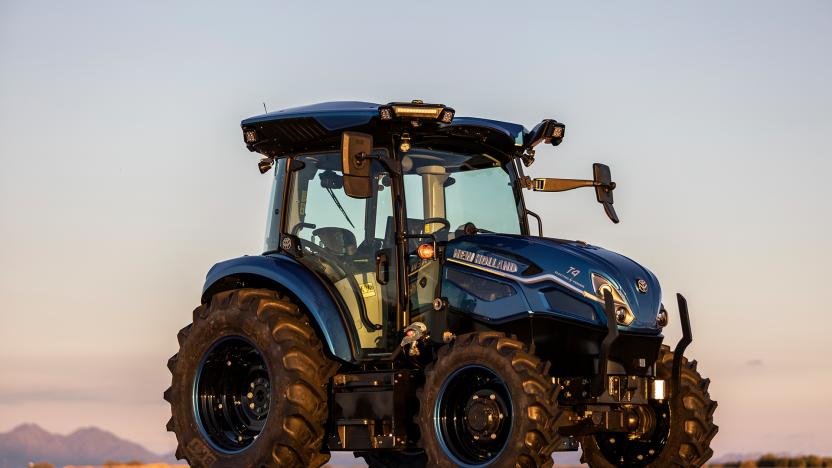
Self-driving electric tractor promises eco-friendly, hands-off farming
Farmers may soon have the option of a self-driving electric tractor that can even power their tools.
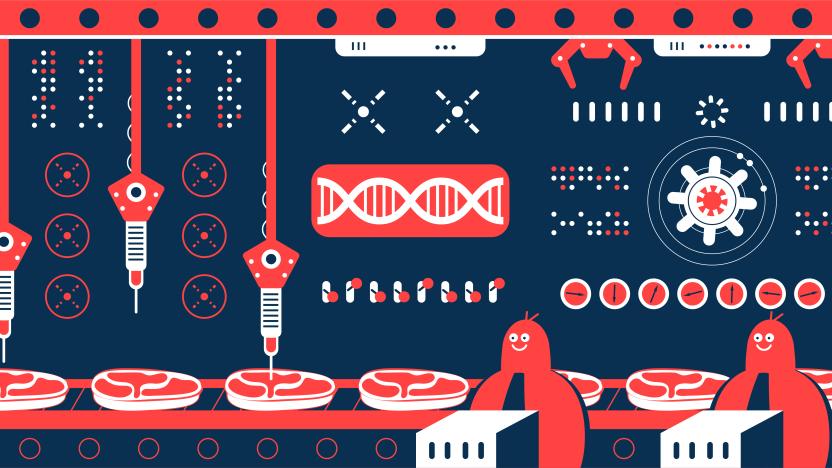
Hitting the Books: Lab-grown meat is the future, just as Winston Churchill predicted
In The Genesis Machine, authors Amy Webb and Andrew Hessel delve into the history of synthetic biology, examine today's state of the art and imagine what a future might look like where life itself can be manufactured molecularly.
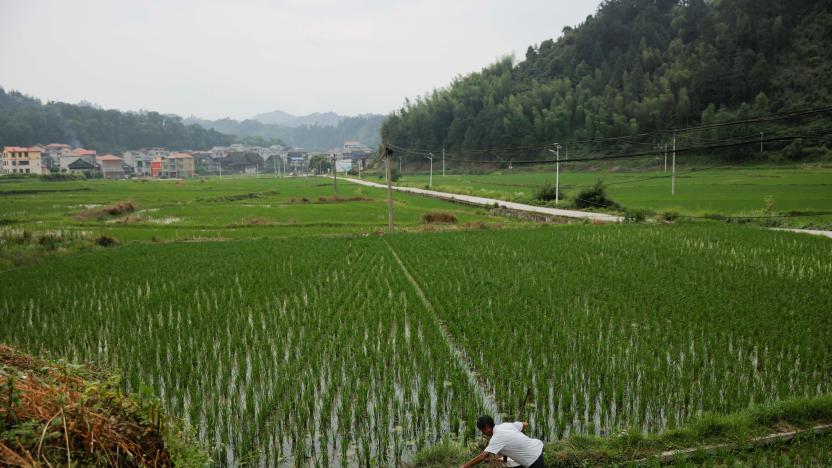
Hitting the Books: 'Miracle Rice' fed China's revolution but endangered its crop diversity
In his new book, Eating to Extinction, BBC food journalist Dan Saladino scours the planet in search of animals, vegetables and legumes most at-risk of extinction, documenting their origins and declines, as well as the efforts being made to restore them.

John Deere says its autonomous tractor is ready for production
All a farmer has to do is drive to the field, set the geofence, and let the Deere 8R do the rest.
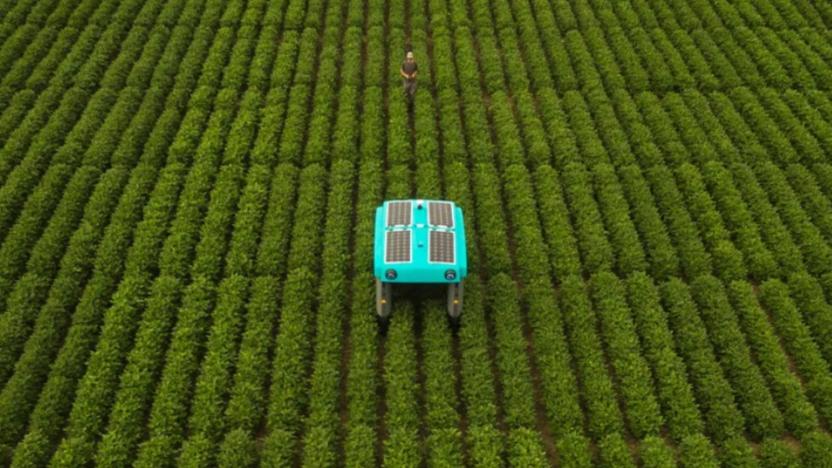
Alphabet's Mineral moonshot wants to help farmers with robotic plant buggies
In 2018, Alphabet's X lab said it was in the process of exploring how it could use artificial intelligence to improve farming. The Mineral team has spent the last several years "developing and testing a range of software and hardware prototypes based on breakthroughs in artificial intelligence, simulation, sensors, robotics and more." Powered by solar panels, the machine makes its way across a farmer's field, examining every plant it passes along the way with an array of cameras and sensors.

Amazon bans foreign sales of plants in US after mysterious seed deliveries
Amazon is banning sales of foreign plants in the US after a string of mysterious seed deliveries in the country.
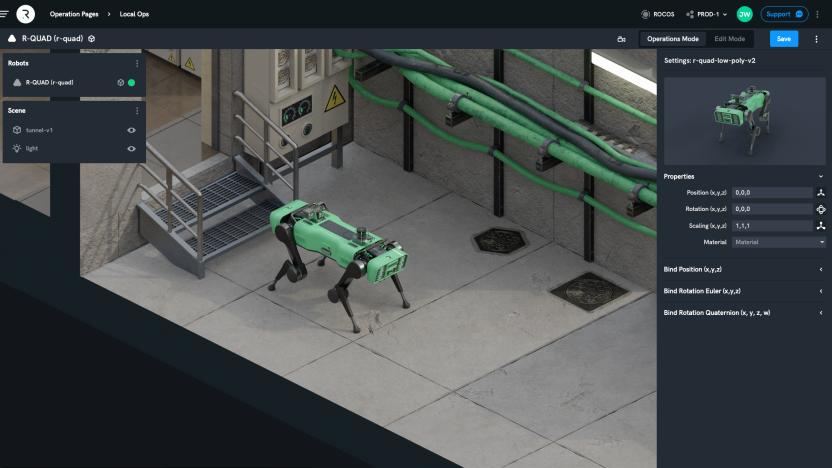
Watch a Boston Dynamics robot herd sheep in New Zealand
New Zealand-based robotics company Rocos shared a video of Boston Dynamics' Spot herding sheep across grassy pastures.
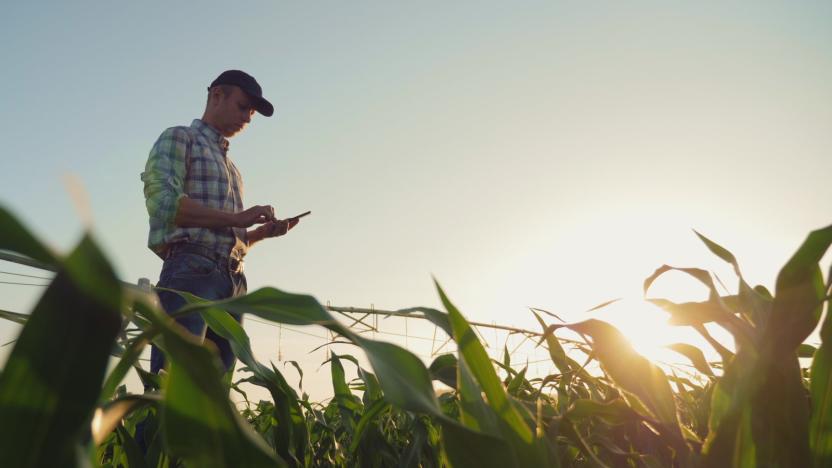
FCC rolls out a $9 billion fund for rural 5G connectivity
The FCC is creating a $9 billion 5G Fund to support rural high-speed connectivity. The funding is intended to help carriers deploy 5G in hard-to-serve areas, those that are sparsely populated and/or have rugged terrain. At least $1 billion will be reserved for 5G to support precision agriculture.
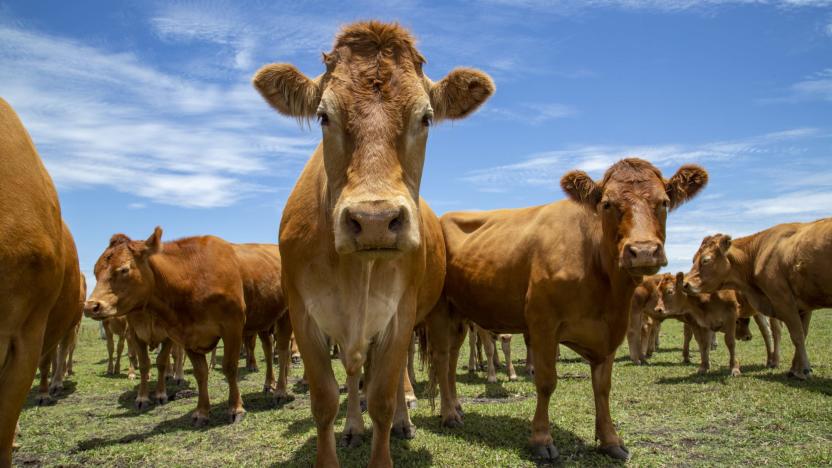
UN: Misuse of land and agriculture is driving climate change
Human beings must change the way we eat and grow our food in order to avert climate change, says a new report from the UN released today. The study breaks down how much harm increased agricultural production -- from farms to cattle ranches to plantations -- is doing to our planet. All together, activities like deforestation, raising livestock and overusing fertilizer in croplands is generating about a third of greenhouse gas emissions. Burning fossil fuels -- either through factories, electricity or transportation -- contributes more than 60 percent.
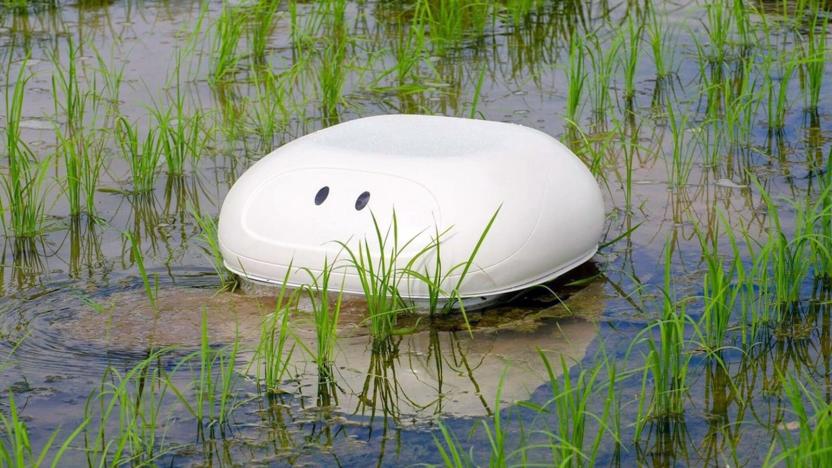
Robot 'duck' keeps weeds out of rice paddies
For rice farmers, ducks have been a viable way to keep their crops healthy -- they destroy weeds, eat bugs and fertilize crops without using harmful chemicals. And now, a Nissan technician might have an alternative when fowl isn't an option. He's testing a robot 'duck' that roams rice paddies, muddying the water to prevent weeds from getting enough sunlight to grow -- it's really a Roomba (and a cute one at that) for watery fields. Although it's a personal project, it's fully realized with GPS, a WiFi connection and solar power to minimize its environmental impact.
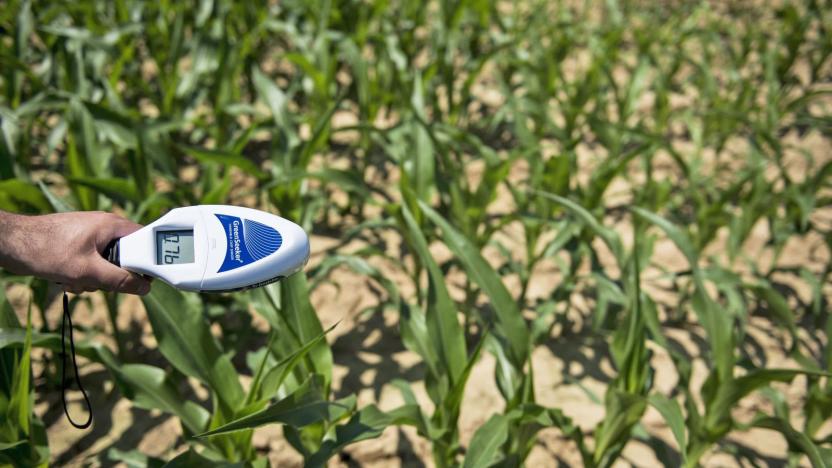
FCC task force will help connect farms and ranches
Today, the FCC announced a task force meant to support the deployment of broadband across unserved farms and ranches. The Precision Ag Connectivity Task Force will work with the US Department of Agriculture and public and private sector stakeholders. It will be responsible for developing policy recommendations for rural, agriculture-focussed broadband. "As I've traveled the country, I've seen the amazing efficiencies, innovations, and improvements that high-speed Internet brings to today's farms and ranches," said FCC Chairman Ajit Pai. " ... This is the present and the future of American agriculture, and we must do whatever we can to support these producers and enhance precision agriculture."

FarmWise and Roush are making autonomous vegetable weeders
Silicon Valley startup FarmWise Labs announced today that it is teaming up with Michigan-based manufacturing and automotive company Roush to create autonomous vegetable weeders. The companies will work together over the course of the year to create prototypes for self-driving robots that will be able to navigate across crops. If all goes well, they will start to scale up with additional units in 2020.

The future of indoor agriculture is vertical farms run by robots
Back in the good old days, farming was easy. Throw some seeds in the ground, keep it watered, pray to your preferred deity to spare your crops from pestilence and wait for harvest season. But with the global population closing in on 7 billion mouths to feed, humanity is going to have to figure out how to grow more food using less land and fewer resources, and soon. So while some researchers and equipment manufacturers are devising intelligent agricultural implements that will toil in tomorrow's fields on our behalf, others are aiming to bring futuristic farms to urban city centers.
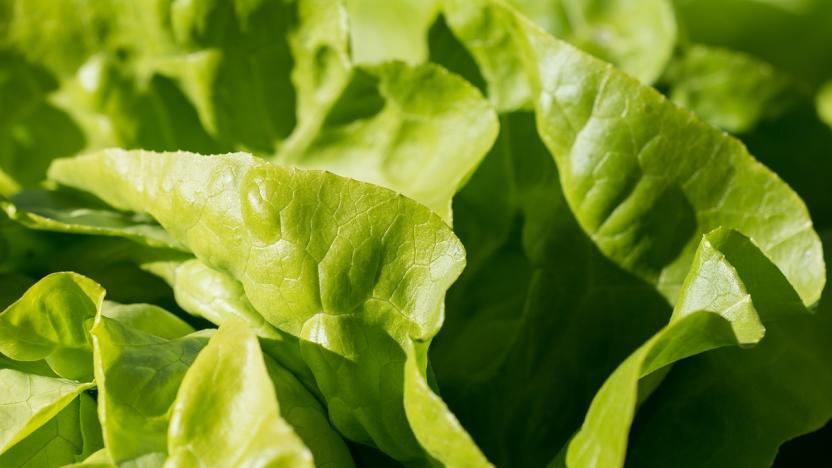
Robots are learning to carefully peel lettuce leaves
Technology is designed to improve and streamline every facet of life, and that inevitably includes areas most people would never even think about. Such a lettuce peeling. A random issue for many, perhaps, but for the agriculture industry, a new development in this field is a big deal. Researchers from Cambridge University have developed the first robotic lettuce leaf peeling system, which not only demonstrates advances in automation, but addresses increasing food and labor demands.
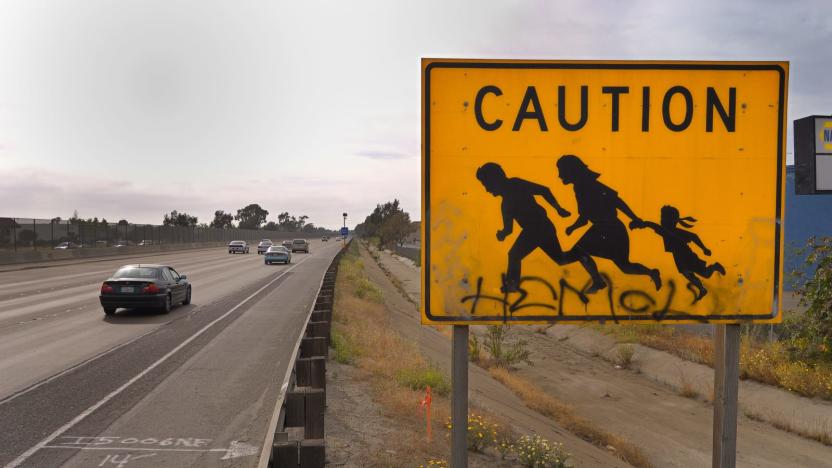
America can't solve its migrant labor crisis with automation
From the moment that Donald Trump set foot on the Trump Tower escalator, the promise of mass deportations for undocumented immigrants was a pillar of his presidential campaign. This is one promise that the current administration has managed to keep, with ICE enforcement efforts skyrocketing since Trump took office in January 2017. While the president's executive orders on immigration have played well with his political base, they've caused havoc with a number of US industries, from tourism to construction. But nowhere are the detrimental effects of these policies more clearly illustrated than in the agricultural sector. What's more, the current state of agricultural automation appears woefully unprepared to fully supplement the loss of migrant labor.
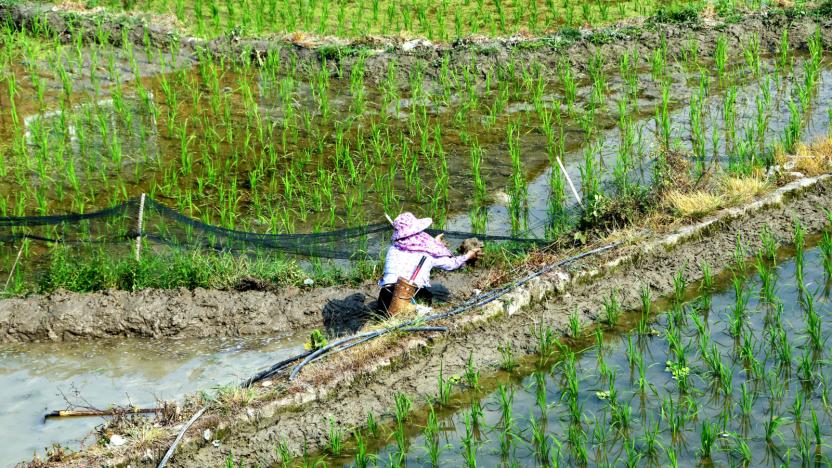
Gene-edited rice plants could boost the world's food supply
Rice may be one of the most plentiful crops on Earth, but there are only so many grains you can naturally obtain from a given plant. Scientists may have a straightforward answer to that problem: edit the plants to make them produce more. They've used CRISPR/Cas9 gene editing to create a rice plant variety that produces 25 to 31 percent more grain per plant in real world tests, or far more than you'd get through natural breeding. The technique "silenced" genes that improve tolerances for threats like drought and salt, but stifle growth. That sounds bad on the surface, but plants frequently have genetic redundancies -- this approach exploited this duplication just enough to provide all of the benefits and none of the drawbacks.

Alphabet's X lab explores using AI to improve food production
Add Alphabet to the growing number of companies hoping that AI will solve food production problems. The Google parent brand's X lab has revealed that it's exploring ways machine learning could improve farming. While X hasn't focused on any specific solutions, lab leader Astro Teller told MIT Technology Review that AI could be combined with drones and other robotics. It could help determine when to harvest crops, or adapt farms in areas where climate change makes forecasting difficult.

Arable's Mark crop sensors give farmers a data-driven edge
I've never actually set foot on a farm, but I'm inexplicably still drawn to agriculture startups -- after all, farming is one of the world's oldest professions, and nothing is quite as helpful as pure hard data. Fortunately, that's exactly what Arable specializes in: It built a crop sensor that's absolutely packed with instruments to give farmers greater insight into how their fields are doing. That's great for business, sure, but it also helps ensure that quality produce eventually ends up on our plates.

John Deere bought an AI company to optimize crop spraying
Want to know how pervasive AI is becoming in seemingly all facets of daily life? Just ask Deere & Company. The John Deere brand owner just acquired Blue River Technology, which uses machine learning and computer vision to target herbicide spraying at just the weed-infested portions of a farm field. The technology can minimize both waste and the amount of input needed while spraying, saving farmers headaches and money in the process.
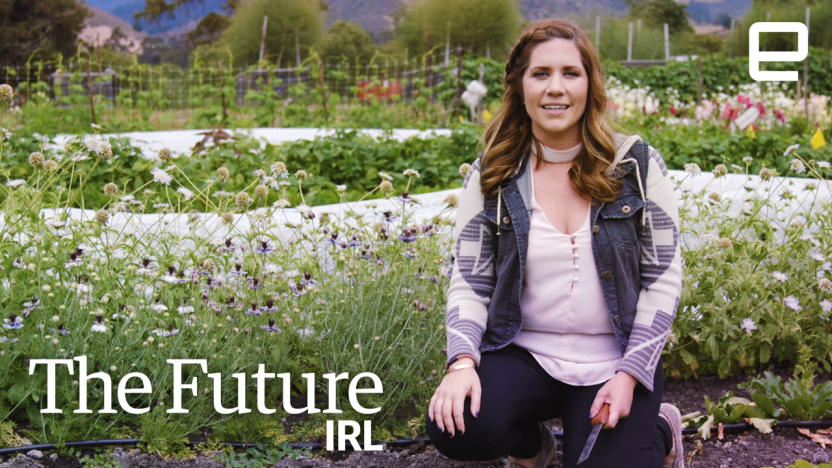
The Future IRL: Robot farmers do the dirty work
The US is facing an agricultural worker shortage, along with aging farm owners, at the same time it juggles demand in food from a global population boom. If we're being blunt, those elements added together would mean farmers and production are straight screwed. Luckily, some engineers and researchers are creating robots that are already beginning to ease the load.









